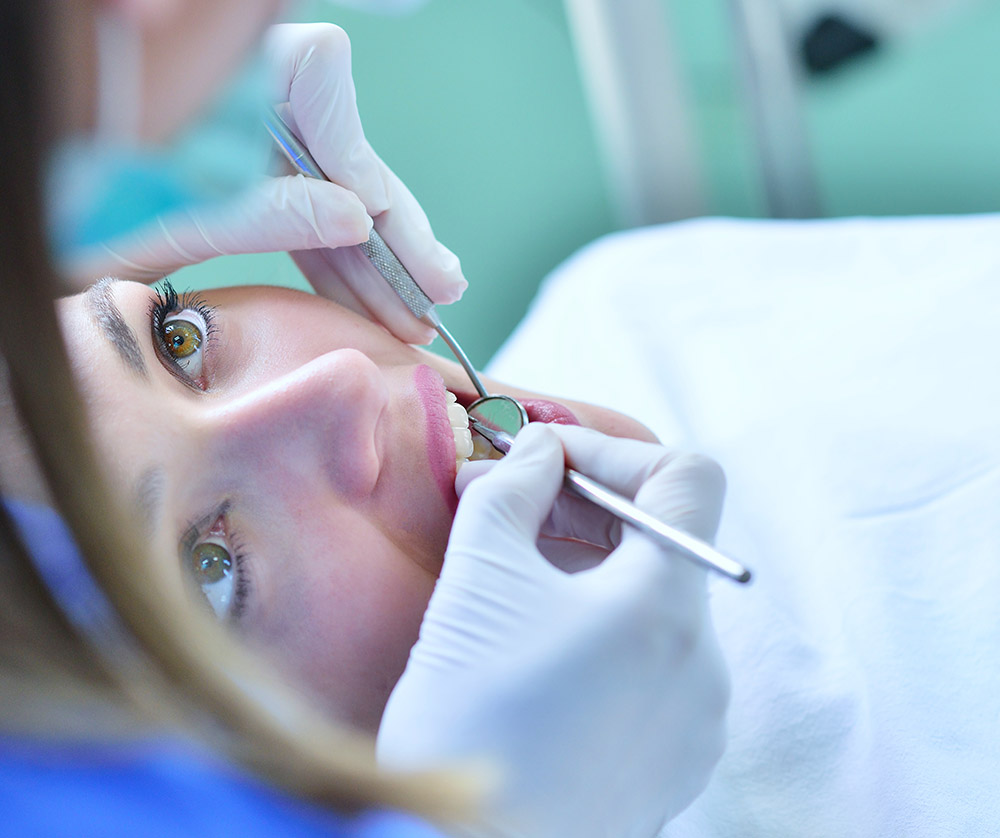 Do you know how to stop gingivitis? Does your mouth bleed when you brush your teeth? Noticing plaque and tartar above the gumline? Gingivitis, an inflammation of the gums, appears as the first sign of someone at risk for periodontal disease. Join us in learning how to stop Gingivitis.
Do you know how to stop gingivitis? Does your mouth bleed when you brush your teeth? Noticing plaque and tartar above the gumline? Gingivitis, an inflammation of the gums, appears as the first sign of someone at risk for periodontal disease. Join us in learning how to stop Gingivitis.
At some point, a dentist has no doubt warned you about it before, but you should take gum health seriously. If left unchecked, a domino effect of oral damage progresses, often resulting in the loss of one’s teeth and increased risk of serious health conditions, including heart disease, stroke, diabetes, respiratory infections, and other afflictions. Preventing that from happening is worth 3 to 5 minutes of your time, twice a day, right?
A survey reported in the Journal of the American Dental Association found that a majority of adults have gingivitis. This suggests that people aren’t taking good enough care of their teeth beyond occasional cleanings with their dentist. With that in mind, our dentists near Collegedale TN offer five ways to stop gum disease and the damage caused by gingivitis:
How to Stop Gingivitis? Brush Twice, Floss Once
The American Dental Association recommends taking the time to brush your teeth in the morning and before bedtime. Flossing should happen during one of those cleaning sessions at home. It’s easy to forget or disregard if you’re in a hurry, but we should make oral health an important part of our daily routine.
Pay More Attention to the Gumline While Brushing
Gingivitis starts with plaque accumulating around the gumline. People often neglect the gums when brushing, but you can easily attack both areas at the same time by angling your toothbrush at a 45-degree angle. You might also occasionally “scrape” the tongue with your toothbrush to remove bacteria and toxins.
Keep Your Toothbrush Germ Free
Brushing daily won’t have as much positive impact if we store our toothbrushes in moist environments that promote the growth of germs. Store in the upright position if possible. Possibly alternate between 2 toothbrushes so one can completely dry while the other is used.
Examine Your Nutrition and Lifestyle
Getting at least 800 milligrams daily of Calcium, known to strengthen bones, can reduce the chances of developing gum disease (which may eventually loosen teeth), according to a study from the State University of New York at Buffalo. The National Institute of Health recommends a daily dose of 100 to 200 milligrams of Vitamin C to check bleeding gums. Studies suggest Vitamin D shows anti-inflammatory benefits, which may reduce bleeding between the gums. Excessive smoking and drinking drain the body of vitamins and minerals. Raw vegetables clean and stimulate teeth and gums. Stress and exposure to toxic chemicals can also contribute to oral decay.
Use a Mouthwash After Brushing
A study in the Journal of Clinical Periodontology suggests that mouthwash containing the chemicals cetylpridinium chloride or domiphen bromide inhibited the development of plaque and reduced gingivitis. Listerine, for example.
Tedford Family Dentistry in Ooltewah offers preventive dentistry to help stop gum disease and other oral health risks. To learn more about our full preventive dentistry services and doing your part at home on how to stop gingivitis, visit http://tedfordfamilydentistry.com/dental-services-ooltewah-tn/preventive-dentistry-ooltewah-tn
Copyright: fsstock / 123RF Stock Photo
